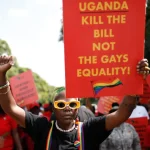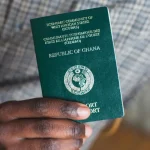
The poor Caribbean country has been mired for decades by political instability, made worse in recent years by gangs that have grown in strength.
The latest data “reveals that 1,041,000 people, many displaced multiple times, are struggling amidst an intensifying humanitarian crisis”, the United Nations’ International Organization for Migration said.
“In December 2023, we (recorded) around 315,000 people were displaced from the violence,” IOM spokesman Kennedy Okoth Omondi told reporters.
“One year since then, we have seen the number tripled to over a million people who have now been displaced because of gang violence in Haiti.”
Most of the displaced were from the capital, Port-au-Prince, which itself has seen internal displacement surge by 87 percent in the past year, IOM said.
The displacement, it warned, was being “fuelled by relentless gang violence, the collapse of essential services — particularly healthcare — and worsening food insecurity”.
Despite a Kenyan-led police support mission, backed by the United States and the UN, violence in Haiti has continued to burgeon.
Last week, the UN rights office said soaring gang violence in Haiti had left more than 5,600 people dead last year and thousands more injured or kidnapped.
– Deportations –
“Haiti needs sustained humanitarian assistance right now to save and protect lives,” IOM director general Amy Pope said.
“We must work together to address the root causes of the violence and instability that has led to so much death and destruction.”
Most of those displaced have flooded out of the capital and sought refuge in Haiti’s provinces, overwhelming host communities and straining limited resources, IOM said.
“What has really made this worse is the fact that we have seen over and over deportation still occurring back to Haiti, where communities are already struggling to basically survive,” Okoth Omondi said.
“Last year alone, 200,000 people were returned to Haiti amidst the current security situation and the humanitarian needs that the country is facing.”
IOM said the number of displacement sites in the country, mainly concentrated in the capital, had swelled from 73 to 108 within a year.
“These sites are severely overcrowded and lack adequate access to essential services such as food, clean water, sanitation, and education,” it warned.
The agency pointed to reports from these sites revealing “deteriorating conditions, with families struggling to survive in makeshift shelters while facing mounting health and protection risks”.
IOM stressed the need for continued humanitarian assistance to Haiti, and long-term investments in security, as well as governance and social cohesion.
“Haitians deserve a future,” Pope insisted.
“In moments of such profound crisis, the world must choose solidarity over indifference.”
nl/apo/yad
© Agence France-Presse






